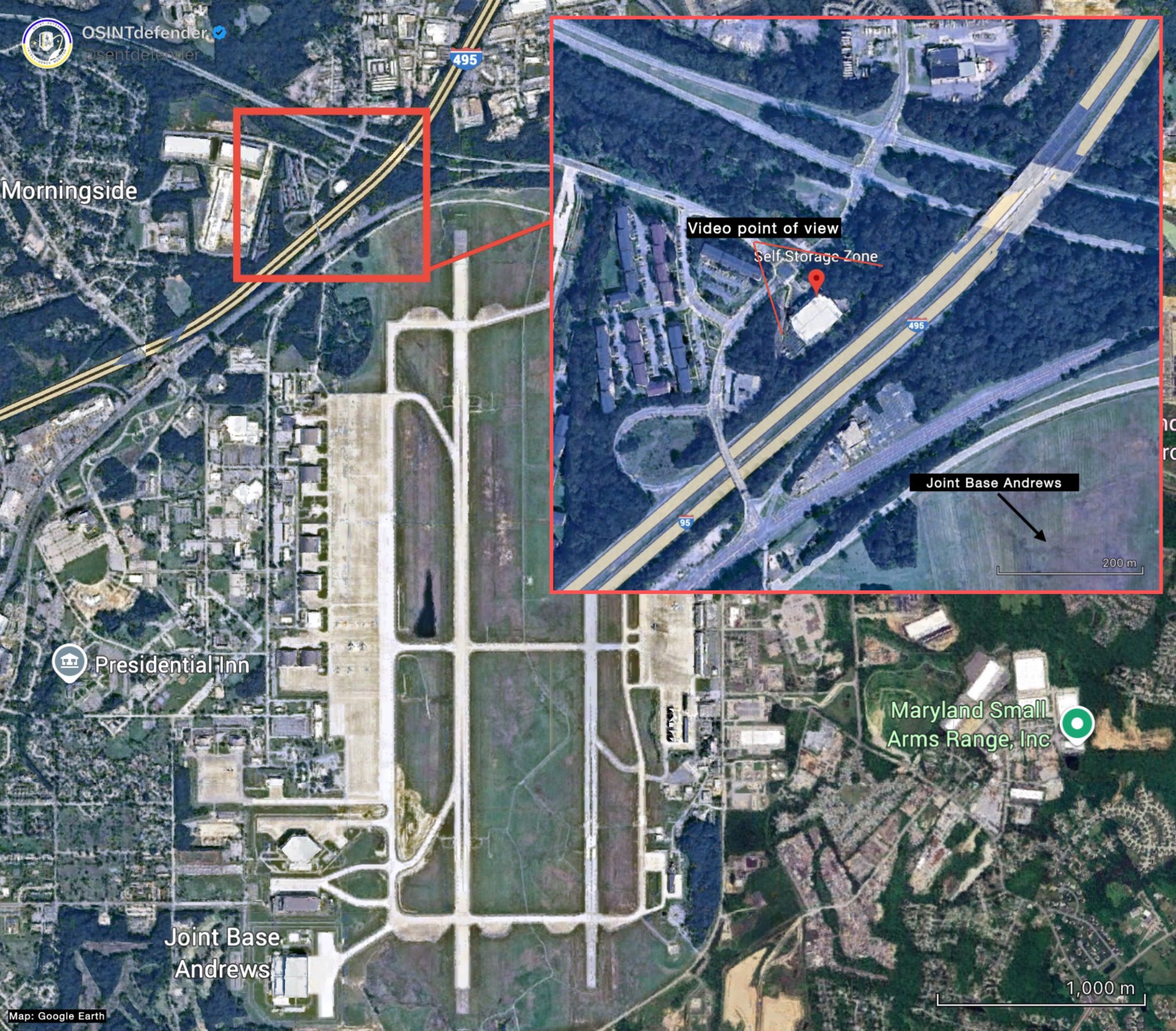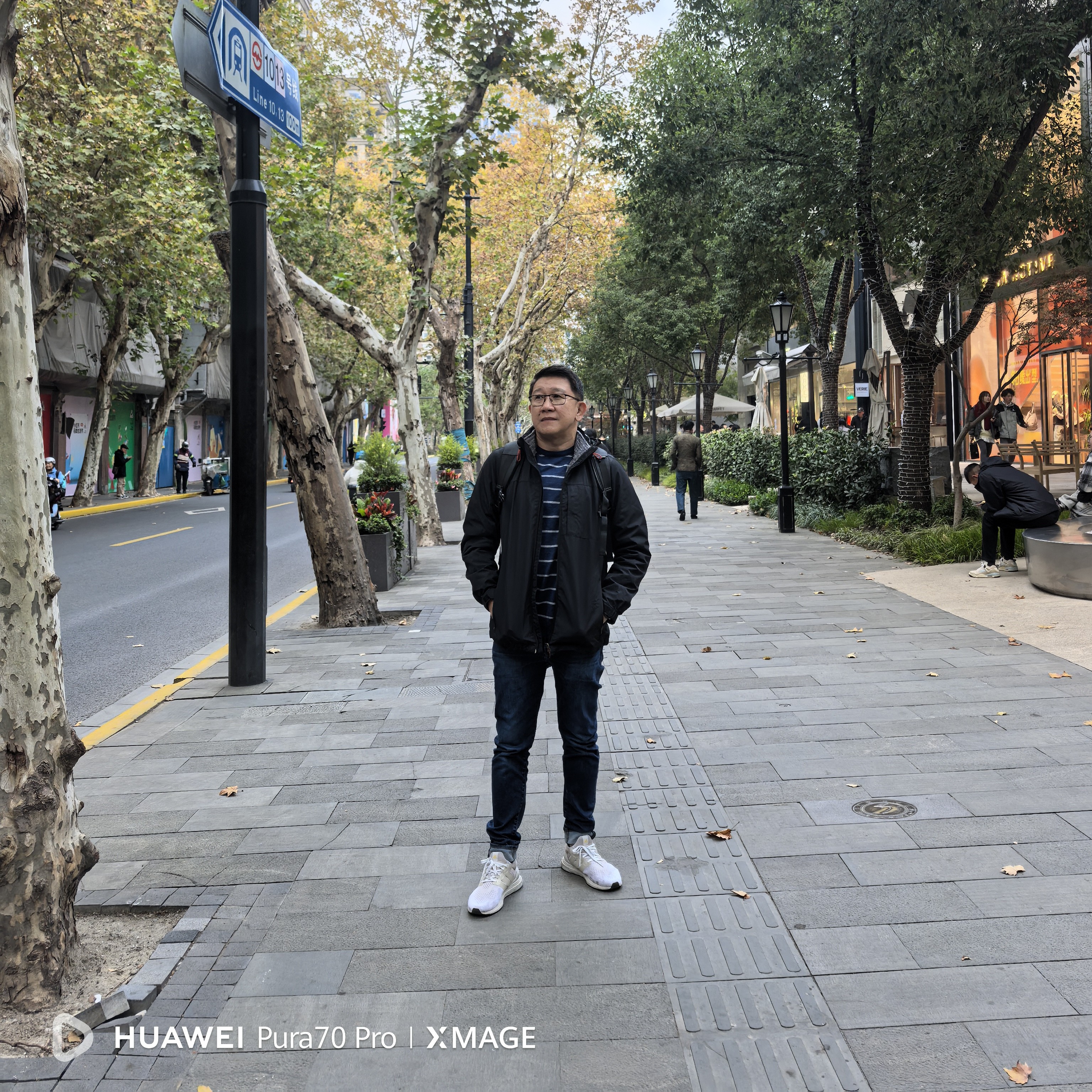0 Comments
0 Shares
111 Views
0 Reviews

Directory
Discover new people, create new connections and make new friends
- Please log in to like, share and comment!
- 🩷🩷🩷 Dior 🩷🩷🩷 #jaychou #周杰伦 #周杰倫 #Dior #เจย์โจว #โจวเจี๋ยหลุน #jaychouthailandfan #Diorthailand0 Comments 0 Shares 875 Views 0 Reviews
- 0 Comments 0 Shares 94 Views 0 Reviews
- 0 Comments 0 Shares 100 Views 0 Reviews
- ไลฟ์สดไลฟ์สดSONDHITALK : ผู้เฒ่าเล่าเรื่อง Ep282 (live)
เวรกรรรมมีจริง! เจอแหล่งกบดานมือยิง สนธิ Ep282 (live)
16 ปี ตามล่าหาคนยิง สนธิ ใครคือคนยิง และ ใครอยู่เบื้องหลัง งานนี้เวรกรรมมีจริง 0 Comments 0 Shares 172 Views 0 Reviews
0 Comments 0 Shares 172 Views 0 Reviews - 0 Comments 0 Shares 126 Views 0 Reviews1

- 0 Comments 0 Shares 278 Views 3 0 Reviews
- 0 Comments 0 Shares 100 Views 0 Reviews
- 0 Comments 0 Shares 73 Views 0 Reviews
-
- World Military and Political (การทหารและการเมืองโลก) added video News and Politicsก่อนจะบินไปสหรัฐอเมริกาเพื่อพบกับทรัมป์ เซเลนสกีได้แวะที่ไอร์แลนด์เพื่อแสดงความขอบคุณนายกรัฐมนตรีไมเคิล มาร์ติน รัฐบาล และชาวไอริชสำหรับการสนับสนุนของพวกเขาก่อนจะบินไปสหรัฐอเมริกาเพื่อพบกับทรัมป์ เซเลนสกีได้แวะที่ไอร์แลนด์เพื่อแสดงความขอบคุณนายกรัฐมนตรีไมเคิล มาร์ติน รัฐบาล และชาวไอริชสำหรับการสนับสนุนของพวกเขา0 Comments 0 Shares 405 Views 11 0 Reviews1

- เซเลนสกีมาถึงสหรัฐอเมริกาแล้ว เครื่องบินลงจอดที่ฐานทัพร่วมแอนดรูว์ส ก่อนการเยือนกรุงวอชิงตัน ดี.ซี.
ภาพวิดีโอถ่ายจากบริเวณนอกฐานทัพร่วมแอนดรูว์ส ใกล้กับกรุงวอชิงตัน ดี.ซี. หลังจากเครื่องบินของประธานาธิบดีโวโลดิมีร์ เซเลนสกีแห่งยูเครนลงจอดที่ฐานทัพ ในวิดีโอจะเห็นขบวนรถกำลังเคลื่อนผ่าน
คาดว่าประธานาธิบดียูเครนโดยพฤตินัยจะพบกับทรัมป์เป็นการส่วนตัวในวันศุกร์นี้เซเลนสกีมาถึงสหรัฐอเมริกาแล้ว เครื่องบินลงจอดที่ฐานทัพร่วมแอนดรูว์ส ก่อนการเยือนกรุงวอชิงตัน ดี.ซี. ภาพวิดีโอถ่ายจากบริเวณนอกฐานทัพร่วมแอนดรูว์ส ใกล้กับกรุงวอชิงตัน ดี.ซี. หลังจากเครื่องบินของประธานาธิบดีโวโลดิมีร์ เซเลนสกีแห่งยูเครนลงจอดที่ฐานทัพ ในวิดีโอจะเห็นขบวนรถกำลังเคลื่อนผ่าน คาดว่าประธานาธิบดียูเครนโดยพฤตินัยจะพบกับทรัมป์เป็นการส่วนตัวในวันศุกร์นี้0 Comments 0 Shares 216 Views 0 Reviews - จะเพิ่มเพื่อนอย่างไรหาชื่อสมาชิกไม่เจอเลยจะเพิ่มเพื่อนอย่างไรหาชื่อสมาชิกไม่เจอเลย0 Comments 0 Shares 268 Views 0 Reviews
- 0 Comments 0 Shares 83 Views 0 Reviews
- 0 Comments 0 Shares 75 Views 0 Reviews
- 0 Comments 0 Shares 66 Views 0 Reviews
- 0 Comments 0 Shares 69 Views 0 Reviews
- 0 Comments 0 Shares 91 Views 0 Reviews
-
- 0 Comments 0 Shares 81 Views 0 Reviews
- Amazon ได้นำแนวคิดของผู้ช่วยเสียงแบบสนทนาไปสู่ระดับใหม่ด้วยการเปิดตัว Alexa+ ที่มีความสามารถในการดำเนินงานที่ทำให้เป็นผู้ช่วยที่มีประสิทธิภาพมากกว่าคู่แข่ง โดย Alexa+ สามารถทำงานประจำวันให้กับคุณได้ นอกจากนี้ยังทำให้เทคโนโลยีผู้ช่วยเสียงเข้าถึงได้ง่ายขึ้นสำหรับผู้ใช้ทั่วไปเมื่อเทียบกับคู่แข่งของ Amazon
หากคุณเคยลองใช้ผู้ช่วยเสียง AI อื่น ๆ และยังไม่ประทับใจใน Alexa+ ต่อไปนี้คือเหตุผลที่อาจทำให้คุณเปลี่ยนใจ:
= ความเชื่อมโยงกับผลิตภัณฑ์ Alexa และ Prime =
หนึ่งในจุดเด่นของ Alexa+ คือการที่ผู้ใช้สามารถสัมผัสประสบการณ์ AI เต็มรูปแบบได้โดยไม่ต้องเปลี่ยนฮาร์ดแวร์ที่มีอยู่ การอัปเกรดนี้ถูกนำมาใช้ร่วมกับการสมัครสมาชิก Amazon Prime ซึ่งมอบสิทธิประโยชน์อื่นๆ เช่น การจัดส่งฟรีแบบสองวันและการเข้าถึง Prime Video ซึ่งเป็นข้อได้เปรียบที่แตกต่างจากคู่แข่งอื่นๆ
= ผู้ช่วยเสียง AI ที่ล้ำหน้าที่สุด =
Alexa+ ได้รับการออกแบบให้สามารถเข้าใจการสนทนาและกระบวนการคิดที่ไม่เป็นลำดับและการตอบสนองต่อคำถามหลายรอบ นอกจากนี้ Alexa+ ยังสามารถดำเนินการต่างๆ ด้วยคำสั่งเสียงง่ายๆ เช่น การจองร้านอาหารหรือการสั่งซื้อของชำผ่านบริการที่รวมเข้ากับระบบ
= ความร่วมมือกับแบรนด์ชั้นนำ =
Amazon ได้ร่วมมือกับบริษัทและบริการชั้นนำ เช่น Ticketmaster, OpenTable, Vagaro, Amazon Fresh, และ UberEats เพื่อให้ Alexa+ สามารถจัดการงานประจำวันได้อย่างมีประสิทธิภาพ เช่น การจองร้านอาหาร การซ่อมแซมอุปกรณ์ในครัว หรือการสั่งของชำ ซึ่งช่วยให้ผู้ใช้สามารถใช้ประโยชน์จาก Alexa+ ได้มากยิ่งขึ้น
https://www.zdnet.com/article/3-ways-amazon-just-leapfrogged-apple-google-and-chatgpt-in-the-ai-race/Amazon ได้นำแนวคิดของผู้ช่วยเสียงแบบสนทนาไปสู่ระดับใหม่ด้วยการเปิดตัว Alexa+ ที่มีความสามารถในการดำเนินงานที่ทำให้เป็นผู้ช่วยที่มีประสิทธิภาพมากกว่าคู่แข่ง โดย Alexa+ สามารถทำงานประจำวันให้กับคุณได้ นอกจากนี้ยังทำให้เทคโนโลยีผู้ช่วยเสียงเข้าถึงได้ง่ายขึ้นสำหรับผู้ใช้ทั่วไปเมื่อเทียบกับคู่แข่งของ Amazon หากคุณเคยลองใช้ผู้ช่วยเสียง AI อื่น ๆ และยังไม่ประทับใจใน Alexa+ ต่อไปนี้คือเหตุผลที่อาจทำให้คุณเปลี่ยนใจ: = ความเชื่อมโยงกับผลิตภัณฑ์ Alexa และ Prime = หนึ่งในจุดเด่นของ Alexa+ คือการที่ผู้ใช้สามารถสัมผัสประสบการณ์ AI เต็มรูปแบบได้โดยไม่ต้องเปลี่ยนฮาร์ดแวร์ที่มีอยู่ การอัปเกรดนี้ถูกนำมาใช้ร่วมกับการสมัครสมาชิก Amazon Prime ซึ่งมอบสิทธิประโยชน์อื่นๆ เช่น การจัดส่งฟรีแบบสองวันและการเข้าถึง Prime Video ซึ่งเป็นข้อได้เปรียบที่แตกต่างจากคู่แข่งอื่นๆ = ผู้ช่วยเสียง AI ที่ล้ำหน้าที่สุด = Alexa+ ได้รับการออกแบบให้สามารถเข้าใจการสนทนาและกระบวนการคิดที่ไม่เป็นลำดับและการตอบสนองต่อคำถามหลายรอบ นอกจากนี้ Alexa+ ยังสามารถดำเนินการต่างๆ ด้วยคำสั่งเสียงง่ายๆ เช่น การจองร้านอาหารหรือการสั่งซื้อของชำผ่านบริการที่รวมเข้ากับระบบ = ความร่วมมือกับแบรนด์ชั้นนำ = Amazon ได้ร่วมมือกับบริษัทและบริการชั้นนำ เช่น Ticketmaster, OpenTable, Vagaro, Amazon Fresh, และ UberEats เพื่อให้ Alexa+ สามารถจัดการงานประจำวันได้อย่างมีประสิทธิภาพ เช่น การจองร้านอาหาร การซ่อมแซมอุปกรณ์ในครัว หรือการสั่งของชำ ซึ่งช่วยให้ผู้ใช้สามารถใช้ประโยชน์จาก Alexa+ ได้มากยิ่งขึ้น https://www.zdnet.com/article/3-ways-amazon-just-leapfrogged-apple-google-and-chatgpt-in-the-ai-race/WWW.ZDNET.COM3 ways Amazon just leapfrogged Apple, Google, and ChatGPT in the AI raceThe long-awaited Amazon Alexa+ upgrade is here, setting a new pace for AI voice assistants.0 Comments 0 Shares 445 Views 0 Reviews - 0 Comments 0 Shares 81 Views 0 Reviews
- จากการศึกษาของ Pew Research ล่าสุด พบว่า 80% ของชาวอเมริกันไม่ใช้ AI ในที่ทำงาน โดยคนที่ใช้ก็ดูไม่ค่อยตื่นเต้นกับประโยชน์ของมันเท่าไร นอกจากนี้ยังมีการสำรวจอีกว่า คนทำงานส่วนน้อยกว่า 1 ใน 3 แสดงความ "ตื่นเต้น" กับการใช้ AI ในที่ทำงานในอนาคต เพียง 6% ของคนทำงานที่คิดว่า AI ในที่ทำงานจะนำไปสู่โอกาสในการทำงานมากขึ้นในระยะยาว
การศึกษานี้สำรวจผู้ใหญ่ในสหรัฐฯ จำนวน 5,273 คน อายุระหว่าง 18 ถึง 65 ปี ที่มีงานทำประจำหรือนอกเวลา โดยผู้เข้าร่วมถูกถามเกี่ยวกับการมองเห็นการใช้ AI ในที่ทำงานรวมถึงประสบการณ์ของตนเองกับ AI ในการทำงาน ผลการศึกษาแสดงให้เห็นว่าคนทำงานส่วนใหญ่กังวลมากกว่าหวังเกี่ยวกับอนาคตของการใช้ AI ในที่ทำงาน โดย 52% ของผู้ตอบแบบสอบถามแสดงความ "กังวล" มากกว่า "หวัง" หรือ "ตื่นเต้น" ตามการศึกษาของ Pew
พนักงานที่มีรายได้น้อยถึงปานกลางมีแนวโน้มที่จะมอง AI ในที่ทำงานในแง่ร้ายมากกว่าผู้ที่มีรายได้สูง ผู้ที่มีรายได้สูงมีแนวโน้มที่จะกล่าวว่าการใช้ AI ในที่ทำงานจะไม่ส่งผลกระทบต่อโอกาสในการทำงานของพวกเขา
ถึงแม้ 51% ของผู้ใช้ AI ที่ทำการสำรวจมีวุฒิการศึกษาระดับปริญญาตรีหรือสูงกว่า เทียบกับ 39% ของผู้ที่ไม่ใช้ AI แต่เพียง 31% เท่านั้นที่กล่าวว่างานของพวกเขาสามารถทำได้บางส่วนด้วย AI
คนทำงานที่อายุน้อยกว่ามีแนวโน้มที่จะรู้สึก "กังวล" เกี่ยวกับการนำ AI มาใช้ในที่ทำงานในอนาคต พนักงานที่อายุระหว่าง 18 ถึง 29 ปีมีแนวโน้มที่จะใช้ AI chatbots ในการทำงาน "อย่างน้อยสองสามครั้งต่อเดือน" เพื่อค้นคว้า สรุป และแก้ไขเนื้อหา แต่มีเพียงส่วนน้อยที่บอกว่าเทคโนโลยีนี้ "มีประโยชน์มาก" ในการเพิ่มประสิทธิภาพและคุณภาพของงาน
Pew ยังพบว่าพนักงานส่วนใหญ่ไม่ได้รับการฝึกอบรมเกี่ยวกับการใช้ AI ในที่ทำงาน มีเพียง 24% เท่านั้นที่กล่าวว่าพวกเขาได้รับการฝึกอบรมเกี่ยวกับการใช้ AI การขาดการฝึกอบรมที่มีประสิทธิภาพนี้ทำให้เกิดความไม่พอใจและกังวลในที่ทำงาน
ข่าวนี้แสดงให้เห็นถึงทัศนคติที่แตกต่างกันต่อการใช้ AI ในที่ทำงานของผู้คนในกลุ่มต่างๆ และความท้าทายในการนำ AI มาใช้เพื่อเพิ่มประสิทธิภาพการทำงาน
https://www.zdnet.com/article/most-us-workers-dont-use-ai-at-work-yet-this-study-suggests-a-reason-why/จากการศึกษาของ Pew Research ล่าสุด พบว่า 80% ของชาวอเมริกันไม่ใช้ AI ในที่ทำงาน โดยคนที่ใช้ก็ดูไม่ค่อยตื่นเต้นกับประโยชน์ของมันเท่าไร นอกจากนี้ยังมีการสำรวจอีกว่า คนทำงานส่วนน้อยกว่า 1 ใน 3 แสดงความ "ตื่นเต้น" กับการใช้ AI ในที่ทำงานในอนาคต เพียง 6% ของคนทำงานที่คิดว่า AI ในที่ทำงานจะนำไปสู่โอกาสในการทำงานมากขึ้นในระยะยาว การศึกษานี้สำรวจผู้ใหญ่ในสหรัฐฯ จำนวน 5,273 คน อายุระหว่าง 18 ถึง 65 ปี ที่มีงานทำประจำหรือนอกเวลา โดยผู้เข้าร่วมถูกถามเกี่ยวกับการมองเห็นการใช้ AI ในที่ทำงานรวมถึงประสบการณ์ของตนเองกับ AI ในการทำงาน ผลการศึกษาแสดงให้เห็นว่าคนทำงานส่วนใหญ่กังวลมากกว่าหวังเกี่ยวกับอนาคตของการใช้ AI ในที่ทำงาน โดย 52% ของผู้ตอบแบบสอบถามแสดงความ "กังวล" มากกว่า "หวัง" หรือ "ตื่นเต้น" ตามการศึกษาของ Pew พนักงานที่มีรายได้น้อยถึงปานกลางมีแนวโน้มที่จะมอง AI ในที่ทำงานในแง่ร้ายมากกว่าผู้ที่มีรายได้สูง ผู้ที่มีรายได้สูงมีแนวโน้มที่จะกล่าวว่าการใช้ AI ในที่ทำงานจะไม่ส่งผลกระทบต่อโอกาสในการทำงานของพวกเขา ถึงแม้ 51% ของผู้ใช้ AI ที่ทำการสำรวจมีวุฒิการศึกษาระดับปริญญาตรีหรือสูงกว่า เทียบกับ 39% ของผู้ที่ไม่ใช้ AI แต่เพียง 31% เท่านั้นที่กล่าวว่างานของพวกเขาสามารถทำได้บางส่วนด้วย AI คนทำงานที่อายุน้อยกว่ามีแนวโน้มที่จะรู้สึก "กังวล" เกี่ยวกับการนำ AI มาใช้ในที่ทำงานในอนาคต พนักงานที่อายุระหว่าง 18 ถึง 29 ปีมีแนวโน้มที่จะใช้ AI chatbots ในการทำงาน "อย่างน้อยสองสามครั้งต่อเดือน" เพื่อค้นคว้า สรุป และแก้ไขเนื้อหา แต่มีเพียงส่วนน้อยที่บอกว่าเทคโนโลยีนี้ "มีประโยชน์มาก" ในการเพิ่มประสิทธิภาพและคุณภาพของงาน Pew ยังพบว่าพนักงานส่วนใหญ่ไม่ได้รับการฝึกอบรมเกี่ยวกับการใช้ AI ในที่ทำงาน มีเพียง 24% เท่านั้นที่กล่าวว่าพวกเขาได้รับการฝึกอบรมเกี่ยวกับการใช้ AI การขาดการฝึกอบรมที่มีประสิทธิภาพนี้ทำให้เกิดความไม่พอใจและกังวลในที่ทำงาน ข่าวนี้แสดงให้เห็นถึงทัศนคติที่แตกต่างกันต่อการใช้ AI ในที่ทำงานของผู้คนในกลุ่มต่างๆ และความท้าทายในการนำ AI มาใช้เพื่อเพิ่มประสิทธิภาพการทำงาน https://www.zdnet.com/article/most-us-workers-dont-use-ai-at-work-yet-this-study-suggests-a-reason-why/WWW.ZDNET.COMMost US workers don't use AI at work yet. This study suggests a reason whyAccording to a new Pew Research study, 80% of Americans don't generally use AI at work, while those who do seem unenthusiastic about its benefits.0 Comments 0 Shares 391 Views 0 Reviews - ร้อยศาสตร์พันศิลป์ พระอันดากู ถูกสลักขึ้นโดยไม่มีซ้ำกันเลย แต่ละองค์สลักขึ้นจากจินตนาการ ผสานพลังศรัทธาอันยิ่งใหญ่ที่มีต่อพระพุทธองค์ ช่างผู้สลักต้องใช้สมาธิขั้นสูง โดยไม่คำนึงถึงระยะเวลาแล้วเสร็จ จึงเป็นงานอกาลิโก ที่ถ่ายทอดจากจิตวิญญาณ ความวิริยะอุตสาหะ ความพากเพียร จินตนาการที่ยิ่งใหญ่เกินขอบจักรวาล จึงก่อเกิดเป็นงานพุทธศิลป์อจินไตย ที่ยิ่งใหญ่และล้ำค่า ผู้ที่ได้ครอบงานพุทธศิลป์ที่สะอาด บริสุทธิ์นี้นับว่าท่านมีบุญบารมี และมีบุญสัมพันธ์กันกับพระอันดากู โดยพระอันดากู ทุกองค์ถูกสร้างขึ้นมาด้วยจิตบริสุทธิ์ เพื่อสืบทอดพระพุทธศาสนา จึงมีพลังงานและญาณเทวดารักษาทุกองค์
……..เนย์ อันดากู……..ร้อยศาสตร์พันศิลป์ พระอันดากู ถูกสลักขึ้นโดยไม่มีซ้ำกันเลย แต่ละองค์สลักขึ้นจากจินตนาการ ผสานพลังศรัทธาอันยิ่งใหญ่ที่มีต่อพระพุทธองค์ ช่างผู้สลักต้องใช้สมาธิขั้นสูง โดยไม่คำนึงถึงระยะเวลาแล้วเสร็จ จึงเป็นงานอกาลิโก ที่ถ่ายทอดจากจิตวิญญาณ ความวิริยะอุตสาหะ ความพากเพียร จินตนาการที่ยิ่งใหญ่เกินขอบจักรวาล จึงก่อเกิดเป็นงานพุทธศิลป์อจินไตย ที่ยิ่งใหญ่และล้ำค่า ผู้ที่ได้ครอบงานพุทธศิลป์ที่สะอาด บริสุทธิ์นี้นับว่าท่านมีบุญบารมี และมีบุญสัมพันธ์กันกับพระอันดากู โดยพระอันดากู ทุกองค์ถูกสร้างขึ้นมาด้วยจิตบริสุทธิ์ เพื่อสืบทอดพระพุทธศาสนา จึงมีพลังงานและญาณเทวดารักษาทุกองค์ ……..เนย์ อันดากู……..0 Comments 0 Shares 525 Views 0 Reviews1
- Apple ได้เปิดตัวเทคโนโลยี "Age Assurance" ที่ช่วยให้ผู้ปกครองสามารถแชร์อายุของบุตรหลานกับนักพัฒนาแอปได้โดยไม่ต้องเปิดเผยข้อมูลสำคัญ เช่น วันเกิดหรือหมายเลขบัตรประจำตัวประชาชน การเคลื่อนไหวนี้เกิดขึ้นขณะที่นักกฎหมายในสหรัฐฯ กำลังพิจารณากฎหมายการยืนยันอายุสำหรับสื่อสังคมออนไลน์และแอปอื่น ๆ รัฐต่างๆ เช่น ยูทาห์ และเซาท์แคโรไลนา กำลังถกเถียงกันเรื่องกฎหมายที่กำหนดให้ผู้ให้บริการแอปสโตร์ เช่น Apple และ Google ต้องตรวจสอบอายุของผู้ใช้
Meta ได้สนับสนุนกฎหมายที่กำหนดให้แอปสโตร์ตรวจสอบอายุของเด็ก ๆ เมื่อดาวน์โหลดแอป แต่ Apple กล่าวว่าไม่ต้องการรับผิดชอบในการเก็บข้อมูลที่ละเอียดอ่อนเหล่านี้ Apple จึงเปิดตัวเทคโนโลยี "Age Assurance" ที่ให้ผู้ปกครองกรอกอายุของบุตรหลานเมื่อสร้างบัญชีเด็ก และสามารถเลือกที่จะแชร์ช่วงอายุแทนที่จะเป็นวันเกิดที่แน่นอนกับนักพัฒนาแอปของบุคคลที่สาม ผู้ปกครองยังสามารถปิดการแชร์ช่วงอายุนี้ได้ ซึ่งช่วยปกป้องความเป็นส่วนตัวของข้อมูลที่สำคัญ
Stephanie Otway โฆษกของ Meta กล่าวว่า เทคโนโลยีของ Apple เป็น "ก้าวแรกที่ดี" แต่ยังคงต้องให้เด็กแชร์ข้อมูลช่วงอายุกับนักพัฒนา ซึ่งทำให้การนำเทคโนโลยีนี้ไปใช้ยากขึ้น สำหรับ Meta พ่อแม่ยังต้องการมีคำพูดสุดท้ายในแอปที่ลูกของพวกเขาใช้
https://www.thestar.com.my/tech/tech-news/2025/02/28/apple-launches-039age-assurance039-tech-as-us-states-mull-social-media-lawsApple ได้เปิดตัวเทคโนโลยี "Age Assurance" ที่ช่วยให้ผู้ปกครองสามารถแชร์อายุของบุตรหลานกับนักพัฒนาแอปได้โดยไม่ต้องเปิดเผยข้อมูลสำคัญ เช่น วันเกิดหรือหมายเลขบัตรประจำตัวประชาชน การเคลื่อนไหวนี้เกิดขึ้นขณะที่นักกฎหมายในสหรัฐฯ กำลังพิจารณากฎหมายการยืนยันอายุสำหรับสื่อสังคมออนไลน์และแอปอื่น ๆ รัฐต่างๆ เช่น ยูทาห์ และเซาท์แคโรไลนา กำลังถกเถียงกันเรื่องกฎหมายที่กำหนดให้ผู้ให้บริการแอปสโตร์ เช่น Apple และ Google ต้องตรวจสอบอายุของผู้ใช้ Meta ได้สนับสนุนกฎหมายที่กำหนดให้แอปสโตร์ตรวจสอบอายุของเด็ก ๆ เมื่อดาวน์โหลดแอป แต่ Apple กล่าวว่าไม่ต้องการรับผิดชอบในการเก็บข้อมูลที่ละเอียดอ่อนเหล่านี้ Apple จึงเปิดตัวเทคโนโลยี "Age Assurance" ที่ให้ผู้ปกครองกรอกอายุของบุตรหลานเมื่อสร้างบัญชีเด็ก และสามารถเลือกที่จะแชร์ช่วงอายุแทนที่จะเป็นวันเกิดที่แน่นอนกับนักพัฒนาแอปของบุคคลที่สาม ผู้ปกครองยังสามารถปิดการแชร์ช่วงอายุนี้ได้ ซึ่งช่วยปกป้องความเป็นส่วนตัวของข้อมูลที่สำคัญ Stephanie Otway โฆษกของ Meta กล่าวว่า เทคโนโลยีของ Apple เป็น "ก้าวแรกที่ดี" แต่ยังคงต้องให้เด็กแชร์ข้อมูลช่วงอายุกับนักพัฒนา ซึ่งทำให้การนำเทคโนโลยีนี้ไปใช้ยากขึ้น สำหรับ Meta พ่อแม่ยังต้องการมีคำพูดสุดท้ายในแอปที่ลูกของพวกเขาใช้ https://www.thestar.com.my/tech/tech-news/2025/02/28/apple-launches-039age-assurance039-tech-as-us-states-mull-social-media-lawsWWW.THESTAR.COM.MYApple launches 'age assurance' tech as US states mull social media laws(Reuters) -Apple on Thursday said it will introduce a way for parents to share the age of a child with app developers without revealing sensitive information such as birthdays or government identification numbers.0 Comments 0 Shares 249 Views 0 Reviews



















